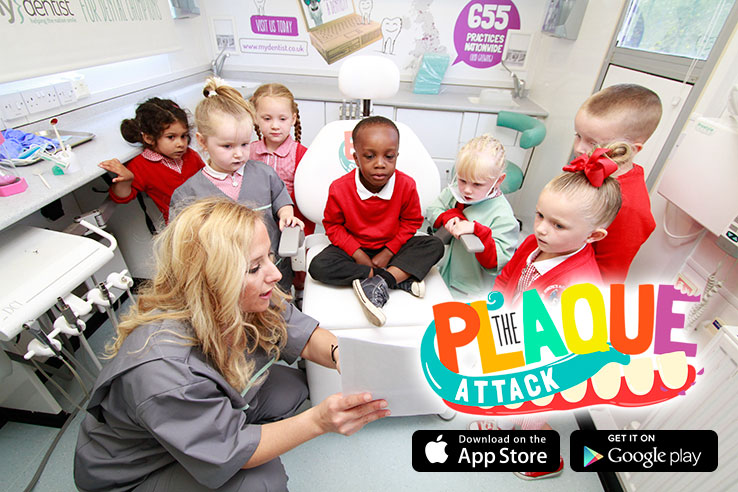by
Lee Waring
| Dec 18, 2015
Ruth Patefield, clinical support manager (CSM) for East Lancashire and Bradford/Halifax speaks to us about her role.
Ruth has always wanted to be a dentist from a very young age: “I have always been interested in caring for others and the anatomy of the human body. As a child I had orthodontic treatment and spent many afternoons there with students and staff having not only the orthodontics carried out but preventive fissure sealants and fluoride treatment (In those days this involved placement of fluoride gel in trays for about half an hour). I found it all fascinating and decided at about the age of 14 years that this was what I wanted to do.”
After qualifying from Newcastle upon Tyne Dental school in June 1991, Ruth commenced her dental career in Gosforth. After then moving to Blackburn in 1993 for her husband’s job, she joined our practice at Padiham Road, Burnley and has worked there ever since.
Ruth has developed her career over the past 25 years through her passion for mentoring, she says: “I was appointed as lead clinician at Burnley in 2005 and have been very involved in mentoring new dentists since 2007. I was a Dental Appraiser for East Lancashire PCT from November 2007 until March 2013, and in October 2011 I became a CSM for the Northwest, and then taking on a second day as a CSM for the North East in August 2014.”
Ruth’s job varies from day to day, CSMs are dentists who work out in the field one or two days a week working closely with the dentists, area managers and practice managers in her area to support with clinical matters. On any given day (when she’s not in surgery working as a dentist), Ruth could be visiting new dentists in her patch to observe them, check they’re settling in and support them with any advice they may need, or she could be providing support with surgery observations and appointment book management.
Ruth considers the most important aspect of her clinical support is the fact that she is a practising dentist with her own patients, so she is well placed to understand and help clinicians with any difficulties they may face.
When asked what the best part of being a CSM, she replied: “Many of the clinicians are very grateful for the support I offer and will send positive feedback, which is always encouraging. And I love seeing a practice flourish. Seeing dentists accomplishing high quality treatments and increasing/improving their clinical skills for the benefit of themselves, the patients and the business makes the role very worthwhile and gives great job satisfaction.
Ruth on rebranding to mydentist:
“The patients are delighted with the refurbishments and now feel part of the brand. Many patients were not even aware that their practice was part of a corporate group but are now asking more questions about the company and giving very positive feedback.
The preventive messages and offering of choice is not only improving the experience of the patients but is also ensuring good compliance with the GDC regulations and Delivering Better Oral Health guidelines which is essential.
The teams within the practices I visit are very happy with the new image, working in a brighter, more modern environment with new uniforms and equipment and offering better customer service leading to increased job satisfaction.
The kid’s club initiative is fantastic. It means the younger children especially are now finding a visit to the dentist fun rather than scary. They like the activity packs, colouring in and puzzles and the new Plaque Attack App seems to be going down well. Parents are beginning to realise the benefits of fluoride and diet. Prevention is so much better than cure, to apply fluoride varnish and fissure sealants to the teeth of children who have a good diet rather than dealing with carious teeth.”

Ruth on how the industry has changed since she qualified:
I think there is a little more knowledge about dental health amongst the public although, in Lancashire where I practice, there is still a huge amount of preventive work to be done as there are still many people with very poor oral health and many who only attend the dentist when they have toothache. For those who come with toothache, the experience is never going to be as good as for those who come regularly for maintenance and prevention. However, we have had a lot of very favourable feedback from new patients who we have helped to get out of pain.
I would advise anyone who hasn’t been to see a dentist for a long time to visit a mydentist practice for an initial examination to see for themselves how things have changed, and to witness a welcoming and friendly environment not to be feared. They will be able to access both NHS and private treatment for their many needs and learn that prevention is the key to a healthy mouth.
The biggest changes I have seen are in the field of cosmetic dentistry. Patients are now very aware about the appearance of their smile. They want to have whiter, straighter teeth and many have heard about implants and are keen to have these to replace missing teeth.
Ruth, who has a keen interest in restorative dentistry, has two teenage sons, one at University the other in sixth form. When she’s not working, she loves nothing more than spending time with her family. She also enjoys golf, walking, reading, going to the theatre and plays the violin with Blackburn Symphony Orchestra